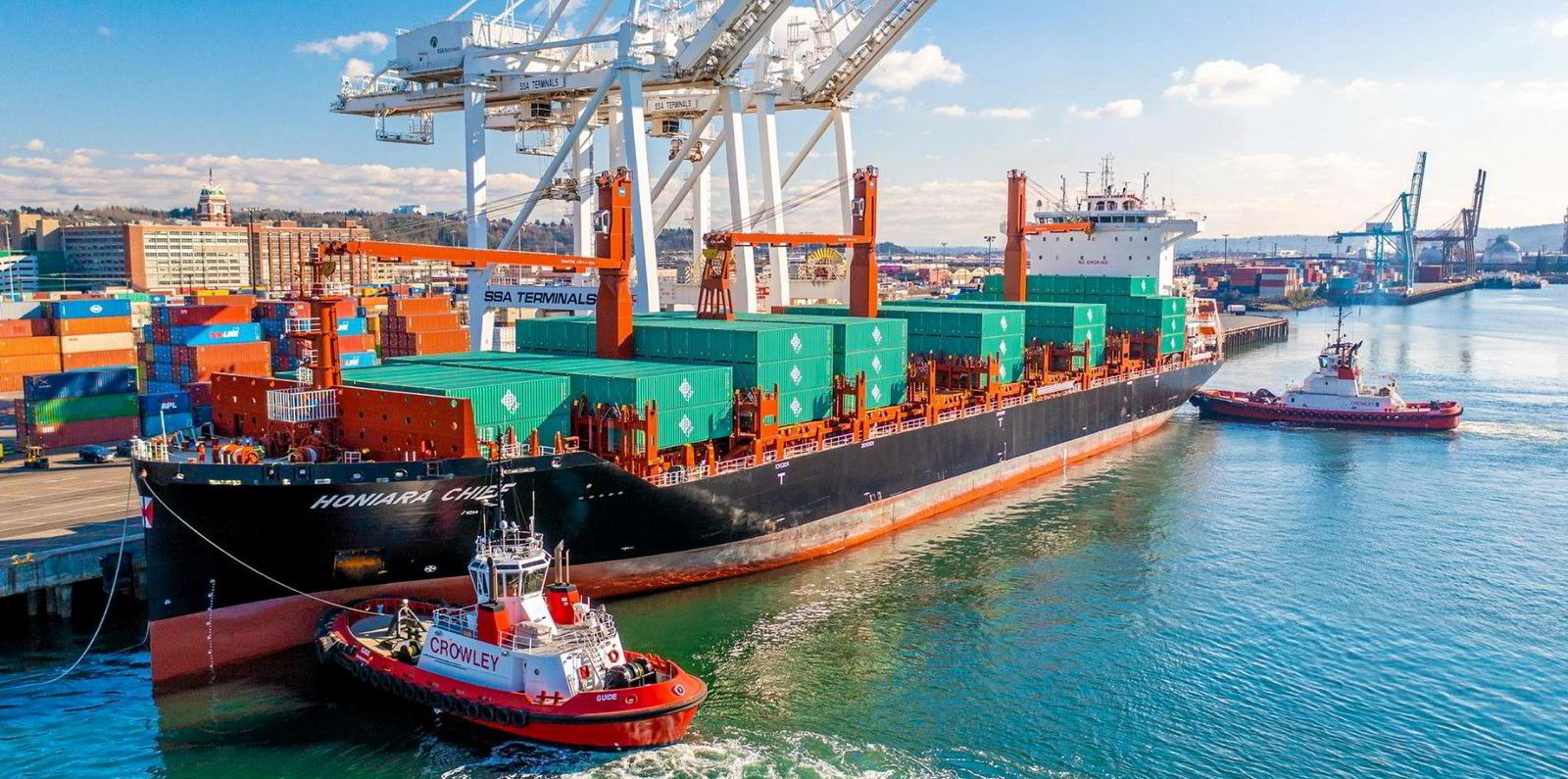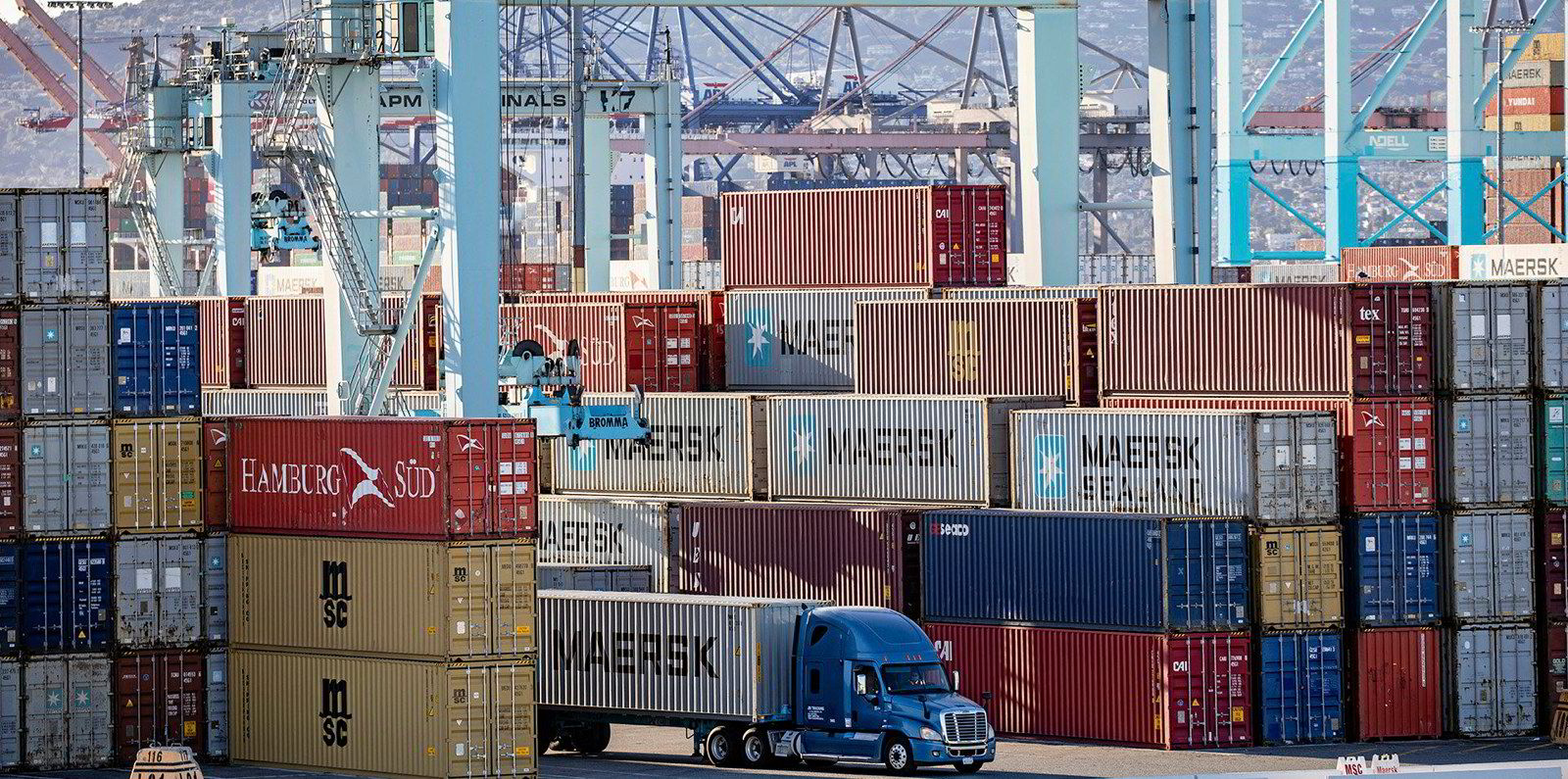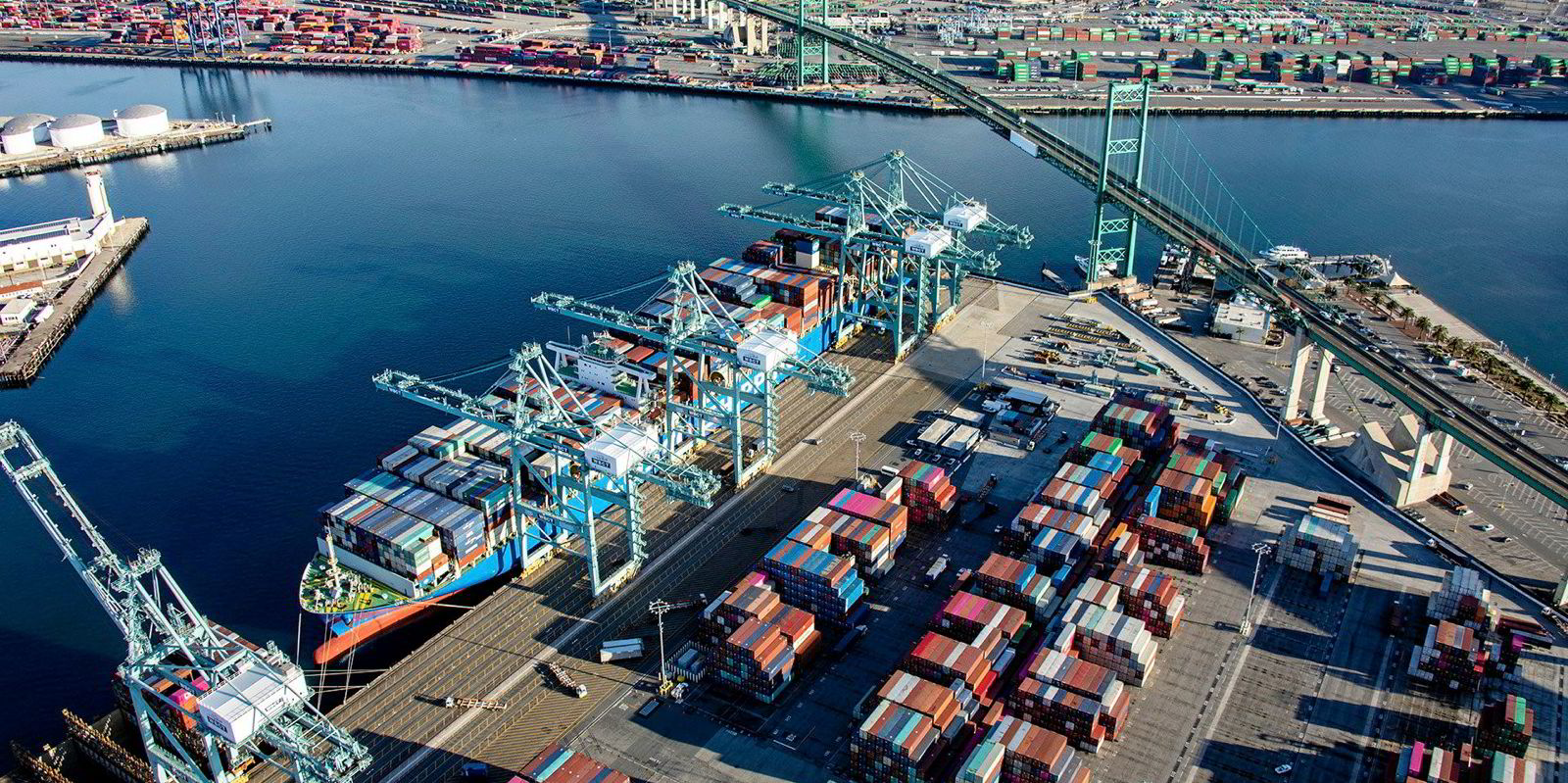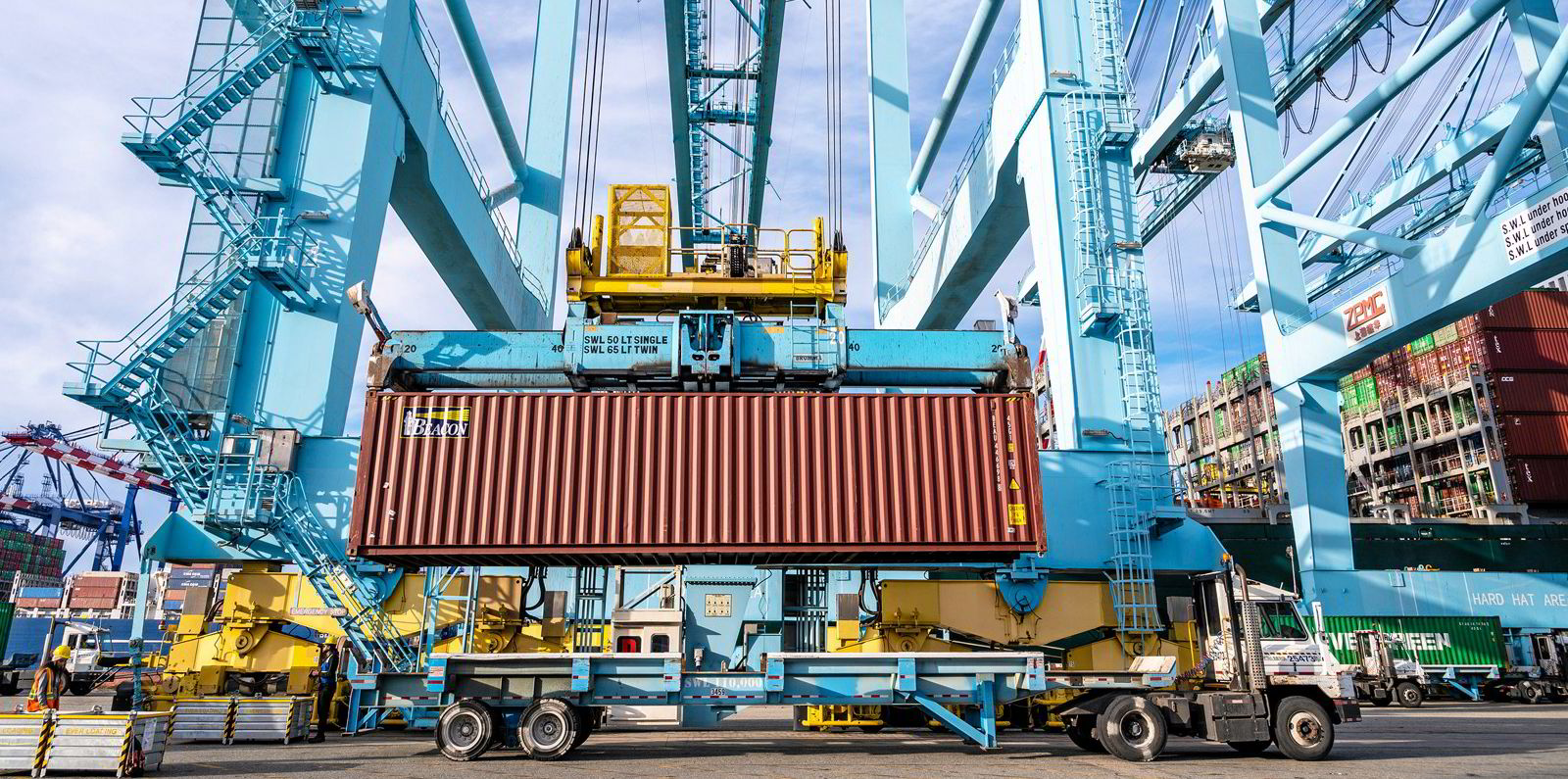Labour disruptions at several ports on the US West Coast may cause higher near-term container freight rates, according to an analyst.
Dockworkers represented by the International Longshore and Warehouse Union (ILWU) walked off or did not show up to work on Friday at the ports of Los Angeles, Long Beach, Seattle, Oakland and Huemene, the Pacific Maritime Association (PMA) said.
“The ILWU is staging concerted and disruptive work actions that have effectively shut down operations at some marine terminals,” it said.
The union’s Local 13, which represents 22,000 dockworkers in California, Oregon and Washington, gave a slightly different version of what happened on Friday.
“The rank-and-file membership of the Southern California ILWU has taken it upon themselves to voice their displeasure with the ocean carriers’ and terminal operators’ position,” it said in a statement.
“However, cargo operations in the ports continue as longshore workers remain on the job to move the nation’s cargo, as they have done valiantly for decades.”
Regardless of what happened, the disruptions to port operations could lead to higher container freight rates in the near future, Jefferies analyst Omar Nokta wrote in a note on Monday.
“Labour issues are again impacting US West Coast port operations with dockworkers reportedly staging a walk-off over the weekend,” he said.
“Container freight rates have made some modest gains since their April lows, and the latest disruption could lead to higher rates in the near term, though we note that very weak volumes over the past several months lessen the severity of the impact in general.”
The average freight rate for a 40-feu container getting shipped from China to the West Coast is $1,441 on Monday to remain flat with Friday’s reading of $1,441, according to the Baltic Exchange.
Some terminals at the Port of Los Angeles experienced worker shortages on Friday, but all of them were open throughout the weekend and on Monday and gave no reports of worker shortages.
“Each terminal handles weekend hours differently, depending on volume and other factors,” he told TradeWinds.
“Most terminals in LA were scheduled not to be open this weekend.”
The Northwest Seaport Alliance (NWSA), which manages the marine cargo properties for both the Port of Seattle and Port of Tacoma, is watching both ports’ operations closely while labour talks continue, NWSA spokeswoman Melanie Stambaugh said.
“Each terminal operator is making their own decisions regarding operations, which vary across our gateway,” she told TradeWinds.
“We do, however, hope for a conclusion of the contract negotiations that support the working men and women of the waterfront while maintaining efficient operations of the supply chain.”
The ILWU Local 13 said it will keep negotiating with the PMA until both sides agree upon a labour contract that is fair to both sides.
“The approximately 12,000 Southern California-based longshore workers who move the nation’s cargo remain in an arduous fight with ocean carriers and terminal operators,” it said in a statement.

“Those ocean carriers and terminal operators made approximately $500bn in net profit during the past two years, as this essential workforce toiled around the clock to ensure delivery of the nation’s goods through a global pandemic.”
Local 13 said at least 43 ILWU members lost their lives as a result of Covid-19 while moving record volumes of boxed cargo.
“Ocean carriers and terminal operators have thumbed their noses at the workforce’s basic requests, insinuating that the health risks and the loss of lives these working people endured during the pandemic did not matter to them,” it said.
“The workforce’s requests are not outlandish; they are basic requests that will ensure that the workforce is treated with the dignity and respect that they have fought so hard to earn.”





